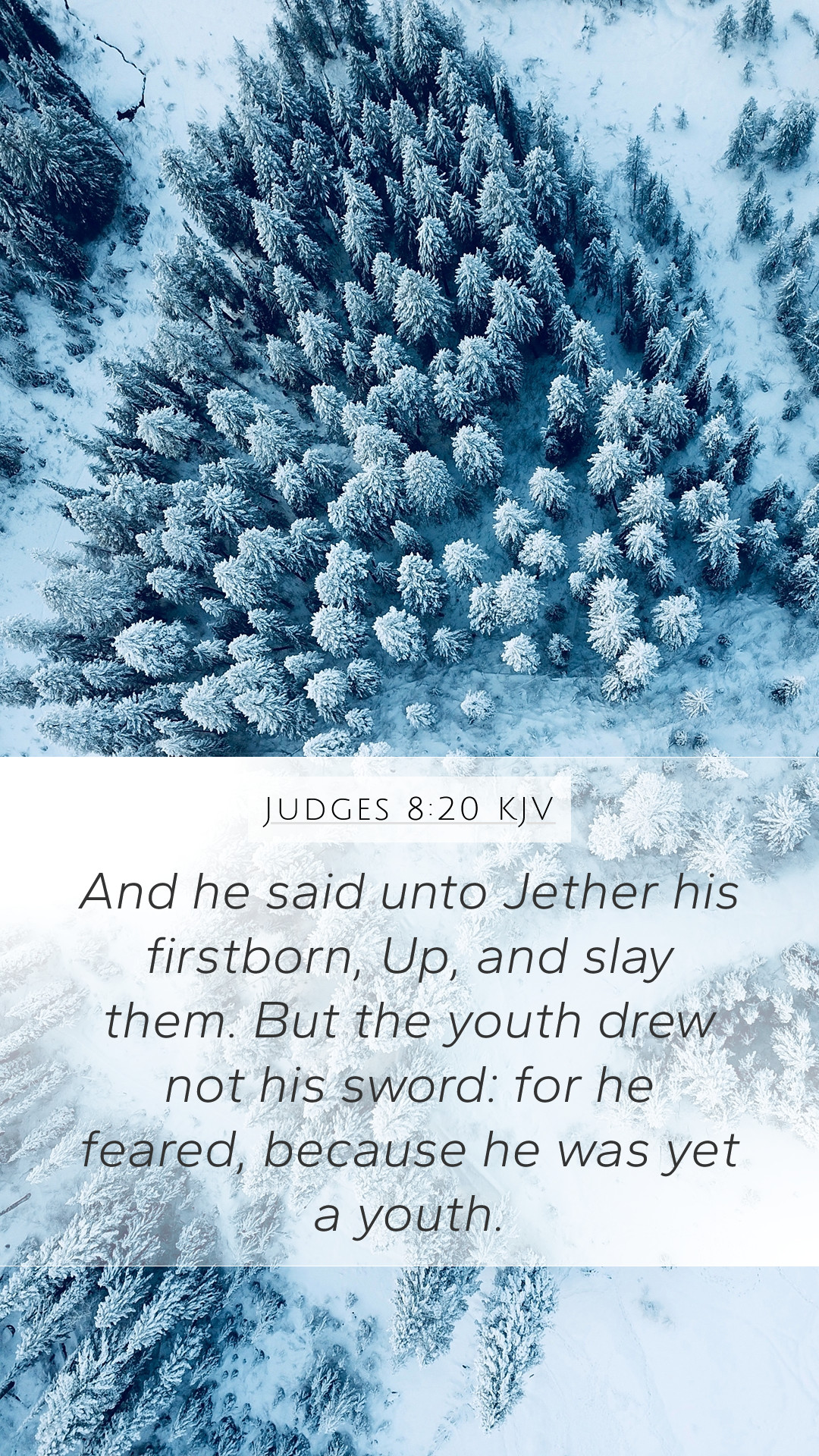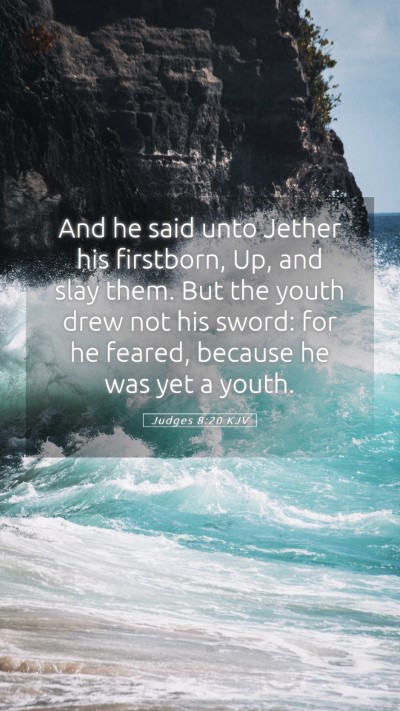Bible Verse Commentary: Judges 8:20
The verse Judges 8:20 records a pivotal moment in the story of Gideon, reflecting themes of leadership, conflict, and divine justice. In this passage, we witness Gideon's instructions to his son, Jotham, in a moment of personal distress, showcasing a father's efforts to guide his offspring amidst the chaos of battle.
Judges 8:20 (KJV): "And he said unto his eldest son Jotham, Cut off his head. But Jotham stood and drew his sword, and he smote him."
Meaning and Implications
This verse can be understood more deeply through various public domain commentaries, offering insights into the historical and theological implications contained within this text.
Contextual Background
To fully grasp the significance of Judges 8:20, it is essential to consider the surrounding context. Gideon, after defeating the Midianites, faces a formidable challenge within his ranks, which requires decisive action. Here, we uncover the tensions of leadership under duress and the consequences of moral decisions made during times of crisis.
Commentary Insights
-
Matthew Henry:
According to Matthew Henry, this verse signifies the severity of Gideon's command, illustrating the precarious nature of leadership and divine judgment. Jotham's role in executing this order demonstrates a passing of authority and a deep connection to the consequences of battle.
-
Albert Barnes:
Albert Barnes emphasizes that this action by Gideon was reflective of the brutal realities of warfare in ancient Israel. He notes that the act symbolizes the cleansing of evil and the ultimate triumph of good over evil, reinforcing the idea that divine purpose often comes through difficult choices.
-
Adam Clarke:
Adam Clarke provides a theological analysis, indicating that the act of executing judgment was necessary to uphold justice as perceived in the cultural context of the time. Clarke explicates the importance of confronting evil head-on and the responsibility of leaders to enact justice.
Spiritual Applications
Judges 8:20 encourages readers to reflect on how they confront the darkness in their lives. It poses critical questions about leadership and moral integrity:
- How do we address wrongdoing in our communities?
- What responsibilities do leaders have towards their followers?
- In what ways can we ensure justice is upheld in our lives?
Cross References
For deeper study, consider these related Bible verses that echo similar themes:
- Deuteronomy 13:9: A command to deal rigorously with idolatry.
- 1 Samuel 15:33: Saul's actions in dealing with Amalek, reflecting the harshness of divine judgment.
- 2 Samuel 18:9: The consequences of conflict as illustrated in the tale of Absalom.
Theological Themes
This verse prompts an exploration of several key theological themes:
- Judgment: The necessity and weight of divine justice.
- Leadership: Responsibilities and ramifications faced by those in positions of authority.
- Conflict: The inherent strife within the journey of faith and moral choices.
Conclusion
In summary, Judges 8:20 serves as a powerful illustration of choices during tumultuous times. Through the lenses of various scholars, we can better understand the weight of Gideon's command and the importance of just leadership. For those seeking Bible verse meanings, Bible verse interpretations, and Bible verse explanations, this passage provides rich insight into the complexities of moral decisions and their impact on individuals and communities.
Engaging with this verse can enhance Bible study insights, and encourage thoughtful discussions in Bible study groups, whether in online Bible study sessions or Bible study courses.


